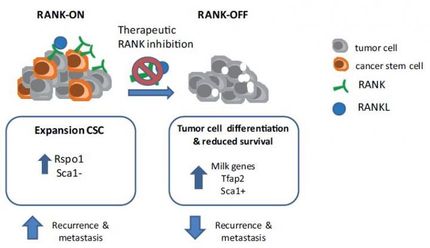Sanofi-aventis: BSI-201 enters phase III in metastatic triple negative breast cancer
Advertisement
Sanofi-aventis and its wholly owned subsidiary, BiPar Sciences, announced the initiation of the pivotal Phase III trial for BSI-201 in combination with chemotherapy in patients with metastatic triple-negative breast cancer (mTNBC), defined by tumors lacking Expression of estrogen, progesterone receptors and without over-expression of HER2. BSI-201 is a novel investigational targeted therapy which inhibits poly (ADP-ribose) polymerase (PARP1), an enzyme involved in DNA damage repair.
The Phase III trial is a multi-center, randomized trial designed to evaluate the safety and efficacy of BSI-201 when combined with gemcitabine and carboplatin (GC) in women with mTNBC. A total of 420 mTNBC patients, who have received 0-2 prior therapies in the metastatic setting, will be randomized to receive GC with or without BSI-201.
The co-primary objectives of this study are to assess improvement in progression-free survival and overall survival. The secondary objectives are to assess objective response rate and safety. An estimated 60-75 sites will be distributed throughout the United States. Importantly, this trial will have a crossover provision that will ensure that all patients enrolled in the BSI-201 Phase III clinical trial have the potential opportunity to receive BSI-201 (patients randomly assigned to the control arm may receive BSI-201 upon disease progression).
The decision to commence with the Phase III study was made based on Phase II study results presented during the Plenary Session of the American Society of Clinical Oncology (ASCO) annual conference on May 31, 2009. The randomized Phase II clinical trial involved 116 women with metastatic TNBC who were randomly assigned to receive GC in combination with the investigational agent BSI-201 or GC alone.
Approximately 62 percent of patients receiving BSI-201 in combination with GC showed clinical benefit, compared with 21 percent in the group receiving chemotherapy alone (p= 0.0002). Tumor response (complete or partial response) was observed in 48 percent of patients who received BSI-201 combined with chemotherapy, whereas patients receiving chemotherapy alone showed a response rate of 16 percent. Women who received BSI-201 had a median progression-free survival of 6.9 months and overall survival of 9.2 months compared with 3.3 and 5.7 months, respectively, for women who received chemotherapy alone. The hazard ratios for progression-free survival and overall survival were 0.342 (p< 0.0001) and 0.348 (p=0.0005), respectively.
The most common severe (grades 3 and 4) side effects included neutropenia [25/57 in patients treated with GC and BSI-201; 31/59 patients treated with GC alone], thrombocytopenia and anemia. No febrile neutropenia was observed in patients receiving BSI-201 combined with chemotherapy. BSI-201 did not add to the frequency or severity of adverse events associated with chemotherapy.



















































